May 2016 Metrics Report
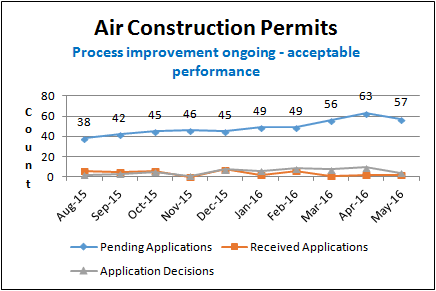
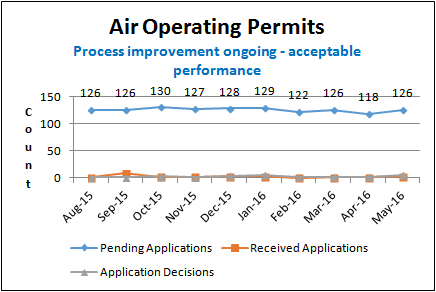
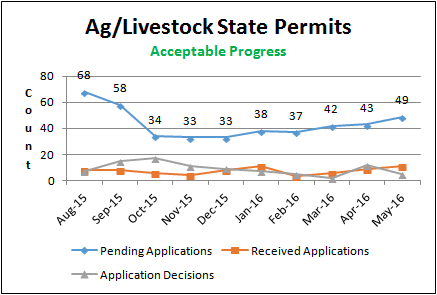
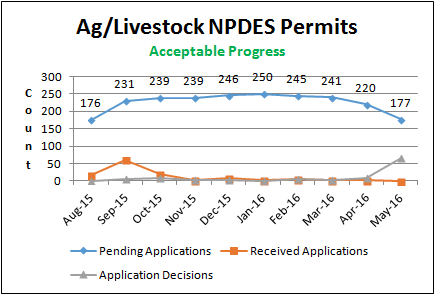
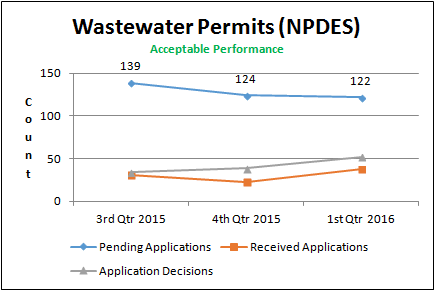
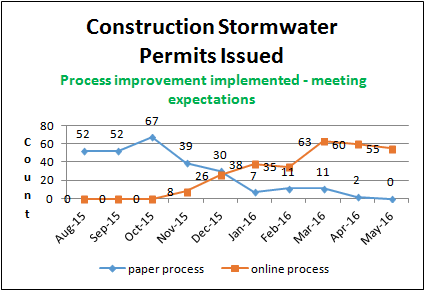
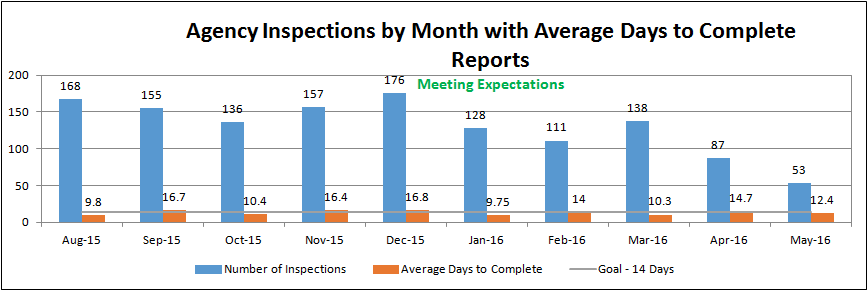
NDEQ’s Water Quality Division is responsible for the administration of programs designed to address groundwater contamination resulting from leaking underground petroleum storage tanks. The following graphs describe: the universe of sites, the status of sites, available resources, and a unique and cost savings program that reuses equipment.
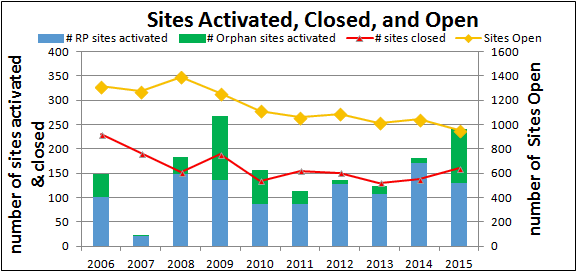
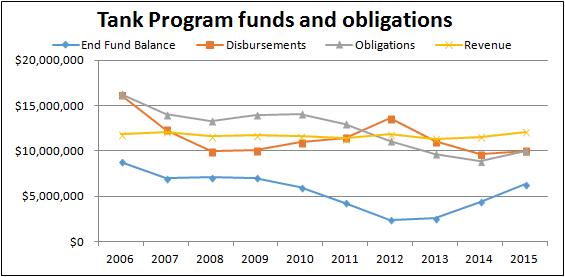
Significant progress has been made in addressing leaking petroleum storage tanks since the program was initiated in the early 1980’s. To date over 5,900 sites have been investigated and closed indicating no additional action was necessary. NDEQ is working on the backlog of sites and remediation is occurring at many sites. The decreasing number of new and open sites coupled with the increasing number of closed sites, is a very positive sign. Nebraska’s groundwater resources are better protected because of the Petroleum Assessment and Remediation program.
NDEQ’s petroleum remediation program is funded by a fee on gasoline and diesel sold in the state. Over $200,000,000 has been spent to address petroleum contamination resulting primarily from leaking underground storage tanks. Typically the fee provides between $11-12 million on an annual basis, which NDEQ uses to pay for eligible cost associated with remediation projects. The entire fund balance is obligated for ongoing projects and newly activated sites. A remediation project may take several years to complete and close.
NDEQ has developed and implemented a program to reuse petroleum remediation equipment. Many states either sell the equipment for pennies on the dollar or, even worse, scrap the equipment. NDEQ warehouses the previously used equipment and makes it available for contractors to use on new sites. Through 2015, the program has resulted in the reuse of 623 pieces of petroleum remediation equipment – everything from air strippers to exhaust fans. The Cumulative savings realized from avoiding the cost of purchasing new equipment is over $4.1 million.
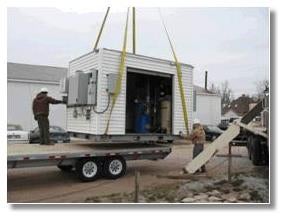
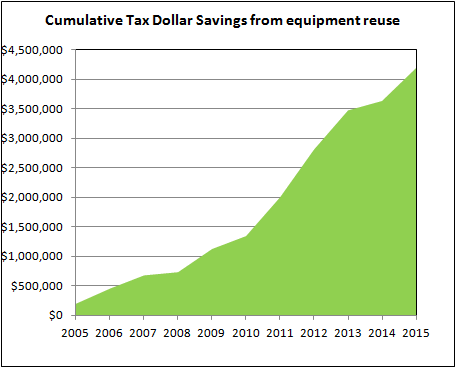
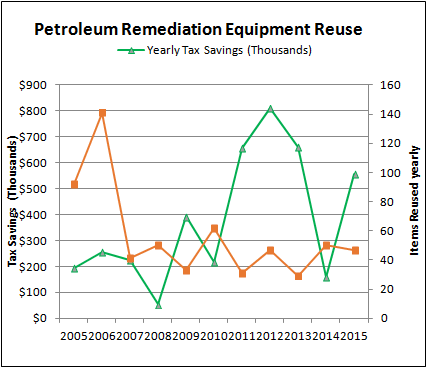
Emerging Risks / Issues: NDEQ staff have been working with City of Valley officials to discuss issues associated with groundwater contamination at a site located near Highway 275 and 288th St. The primary contaminant in the groundwater is tetrachloroethylene (TCE). To date, few citizens have been impacted; however, there is potential to impact Valley's public water supply. Because the party responsible for the groundwater contamination has not been identified, the site is a candidate for EPA's Superfund National Priorities List. NDEQ staff explained the contamination, the site characteristics, and the Superfund process to Valley officials. The Mayor of Valley has informed NDEQ they would like to enter the Superfund process, NDEQ will continue to provide assistance to Valley in this effort.
Accomplishments: NDEQ announced the award of thirty-seven grants to both public and private entities totaling $3,454,825 from NDEQ’s Waste Reduction and Recycling grant program. The grants are intended to reduce the amount of waste going to our landfills and to increase the utilization of resources. Projects ranged from the collection of household hazardous waste to establishing large composting operations. The grant program is funded by three fee sources: a disposal fee, a business fee, and a tire fee.
NDEQ presented three “Environmental Update” conferences at North Platte, Omaha and Lincoln. This is NDEQ’s annual outreach activity where we report to the regulated community on new and emerging issues. The event has grown in attendance the last several years; attendance in North Platte increased fourfold, from 6 to 24. Overall, there were 157 attendees at the three locations. NDEQ plans on holding three shorter duration workshops with narrower focus this fall.
Misc. Items of Note: For several years, Lake Helen in Gothenburg, a 30-acre impoundment, was not able to support a fishery and had dense blooms of cyanobacteria that resulted from high nutrient concentrations, shallow depths, poor water circulation and high water temperatures. NDEQ provided funds ($416,000) for lake renovation through the federal Clean Water Act Section 319 Nonpoint Source Pollution Program, with other project funds coming from the City of Gothenburg, Central Platte NRD, Nebraska Environmental Trust and Nebraska Game and Parks Commission, totaling more than $1.5 million. Project features to improve water quality included sediment excavation, shoreline stabilization, bio-swales, tall grass buffers, and waterfowl control measures. Post-project results show an increase in water clarity from 3 inches to 15 feet and a decrease in total phosphorus from 490 to 24 µg/L.